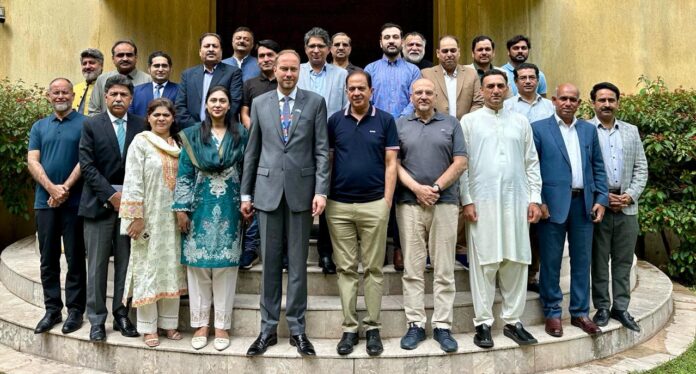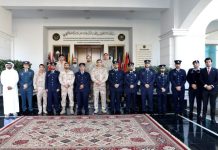Staff Report
ISLAMABAD: The Employers’ Federation of Pakistan (EFP), in collaboration with the International Labour Organization (ILO), on Thursday highlighted the critical role of media in addressing forced labour and promoting fair recruitment practices in the country.
Speaking at a high-level consultation session with media persons, ILO Country Director Geir T. Tonstol emphasized the urgent need for Pakistan to improve industrial conditions to retain its Generalised Scheme of Preferences Plus (GSP+) status from the European Union.
He stressed the importance of complying with 27 international standards related to labour, human rights, and environmental protection.
The session held here at the ILO office gathered editors, news directors, and bureau chiefs from 25 major media organizations across the country. The participants discussed on how media coverage could be enhanced to raise awareness, influence public opinion, and drive policy reforms to combat forced labour in the informal sector and ensure ethical recruitment practices.
Dr. Faisal Iqbal, the National Project Coordinator at ILO, highlighted media’s pivotal role in raising public awareness about forced labour and advocating for fair recruitment practices.
“Media can be key influencers in shaping public perceptions about forced labour and labour migration,” he said, emphasizing the media’s responsibility in driving meaningful change.
Syed Nazar Ali Shah, Secretary General of the Employers’ Federation of Pakistan, briefed the media managers on the purpose of the event. He noted that the workshop aimed to foster a deeper understanding among media professionals of the critical issues surrounding forced labour and fair recruitment. He also stressed the importance of collective action in tackling these issues, particularly in the informal sector.
Aoun Sahi, a media trainer, provided an overview of the six training sessions conducted for journalists on covering forced labour and fair recruitment. He highlighted the importance of empowering the media to tackle forced labour, particularly in informal sectors and formal sectors like textiles, where exploitative practices are most prevalent.
The media managers appreciated ILO’s efforts and expressed keen interest in continuing to engage with the issue. They proposed more frequent interactions with ILO officials and additional training for reporters on forced labour and fair recruitment. Furthermore, they suggested forming an alliance of media outlets dedicated to mainstreaming these issues in Pakistan’s media landscape.
These sessions, held under the US DOL-funded BRIDGE project, were designed to equip journalists with the skills needed to report on these complex issues effectively.
The ILO’s latest global estimates indicate that nearly 28 million people worldwide are affected by forced labour, generating illegal profits of approximately $236 billion annually.




